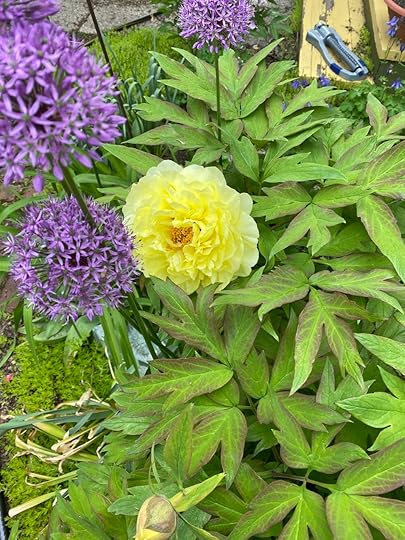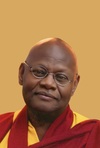Leon E. Pettiway's Blog
February 17, 2025
New Harmony Series

When I was in high school, which seems like ages ago, I dreamed of being a writer. I was fascinated with Faulkner; he was a Southerner like myself. During that time, Jim Crow reined, and there were so many who denied a “colored” boy’s dreams. Besides, I didn’t think “I” was good enough and didn’t pursue majoring in English as one of my friends suggested. I became an academic, and academic disciplines tend to beat any and everything literary out of you. However, upon being promoted to full professor, I felt free to experiment. In that space, I wrote my first novel, New Harmony. It has sat on various computers for more than thirty years but is now about to make its debut.
The New Harmony Series hits many niches: literary fiction, women’s fiction, historical fiction, and mystery.
In the first book of the series, New Harmony: A Mother’s Story of Mystery, Love, and Loss, Margaret Butler tells the story of her son’s murder. As a deeply spiritual woman born in 1905, her story also reflects the laments of former slaves and their descendants because Thad’s murder, as well as the truth of who killed him, is wrapped up in the paternalism and racism of the South, reflected in the lives of Ophelia and Hollis Demmings, occupants of the Big House. Their two children, Candy and Floyd Demmings, as well as the objects of their affection, become collateral elements that contribute to Thad Butler’s murder and the eventual murder of Hollis Demmings. After recounting Thad’s funeral in the first chapter, Margaret’s story begins as a ten-year-old who fervently wishes to be schooled. The book’s first part follows the contours of Margaret’s life, from her childhood innocence to her son’s death. Part One builds the intricate web of decisions and behaviors that become the rationalizations for murder. Part Two recounts what unfolds from her son’s death, continuing until we learn the reasons for Thad’s murder and the person responsible.
New Harmony: A Mother’s Story of Mystery, Love, and Loss will be published in 2025. The remaining books, Suleimān’s Psalm: New Harmony and Beyond and Awakened: New Harmony Re-embodied, will be published in 2026 and 2027.
May 10, 2023
Gratitude for the Achievements and Contributions of Africans in America

An excerpt from my upcoming book Only for the Brave at Heart.
On National Public Radio's All Things Considered, Richard Rodriguez offered a commentary on the immigration problems facing Latino Americans , and he spoke of the multitude of jobs immigrants perform which go largely unappreciated. I was very moved by his comments, and I thought it appropriate to do the same for the direct descendants of Africa’s Eve. In that regard, I would like to offer my deep gratitude to Mr. Rodriguez.
PROLOGUE
In all the discussions concerning the problems of race and racism, we have forgotten the achievements and contributions of Africans in America. What distresses us most is that America has never summoned enough regret to issue forth the three relevant words that speak of an apology, and America has never found the two relevant words that speak of gratitude. America, you have never said, "I am Sorry," and America has never said, "Thank you." So, in your forgetfulness, I will speak to my brothers and sisters with these words.
Thank you for bearing the face of poverty; you remind America of the need to practice generosity. Thank you for all the strong black men who have bowed and said, "Yes Sir, Mr. Charlie" with a smile. You suffered all sorts of indignity in order to care for our mothers and our children.
Thank you for the women who washed the clothes and scrubbed the floors; they were also the ones who baked the bread and cooked the food for white tables at which they were never allowed to sit, but they still possessed enough love to nurse the young and dry their tears when white mothers were too busy or desired relief from parenting. You endured all manner of degradation to feed the young around black tables, and you used your meager means to educate us so a different life could be enjoyed. So, thank you to our parents and their ability to feed and clothe families in both love and cloth when there was little money or recognition given to their sacrifices and efforts.
Thank you for all the grandmothers who raised the children of daughters and sons who lost their way on drugs and by other misdeeds; you know and teach us the meaning of family. Thank you to all the single mothers. You have been vilified with such disdain, but you made a way when there seemed to be no way at all. You had little, but you gave everything. You perfected generosity.
Thank you for taking care of the sick and the dying in hospitals where you emptied bedpans and scrubbed and cleaned what others saw as revolting. You held your stomach with great dignity and knew the true meaning of pride. Thank you for cleaning toilets, restaurant kitchens, schools, and universities, and all the office buildings that serviced the rich and the poor. Thank you for serving us in restaurants and clearing our tables of the dishes that held the perfect food, cooked and placed on plates washed by black hands. Thank you for washing cars and pumping gas. Thank you for hauling the garbage, the waste, and the excesses that fill the sidewalks and alleys of our cities and hamlets. Thank you for picking all the cotton, the tobacco, and all the fruits and vegetables you harvested as the invisible migrants. Thank you for taking care of our dying parents; particularly those who were discarded to nursing homes where the rich deposited their own but where you perfected grace and dignity. Thank you for chopping all the wood that filled the hearths, the stoves, and the fireplaces of the rich and the not-so-rich. So, thank you for taking the hard, the dead-end, and the dirty jobs; they offered little pay, but you bore these with no complaint. You remind other Americans with your eager hands of the humility they have lost.
And for those who wear the face of physical illness, you remind America of what it means to suffer in body, mind, and spirit; you become conduits for compassion and care. Thank you for the young men who lost their lives in urban blight and in the wars fought for a nation that failed to see the beauty of black, silky-skinned lads. Thank you for all the young men who wear the criminal's face in order to remind us of what can be lost in making a mistake and what could be gained if we upheld justice. Thank you to all my innocent brothers and sisters, who endured injustices at the hands of the law that supported racial bigotry. But because of your plight, Americans came to enjoy procedural protections found in the right to an attorney, the right to be free of torture, the right to a trial absent of mob intimidation, and the right to vote.
Thank you for the literature of James Baldwin, Toni Morrison, Ralph Ellison, James Weldon Johnson, and Richard Wright—thank you for Zora Neal Hurston, for Gwendolyn Brooks, and for Alex Haley. Thank you for Alice Walker, and for Phillis Wheatley, too. Thank you for W.E.B. Du Bois and Booker T., for Amiri Baraka, Henry Louis Gates, Cornel West, and John Hope Franklin. Thank you for the players of football and basketball—for the athletes of track and field and for those who punched their way to become champions in the ring—thank you Jack Johnson, Joe Louis, Mohammed Ali, George Forman, Joe Frazier, and Sugar Ray. Thank you for the jazz, the blues, for the hip-hop and the rap. Thank you for laying before the nation a moral center that sings, “God of our weary years/God of our silent tears/Thou who has brought us thus far on the way/Thou who has by Thy might/Led us into the light;” you teach the word “freedom” and hope to others around the globe. Thank you, Frederick Douglas, Dr. King, and to Malcolm, I thank you, too.
So, thank you for being simple folk, ordinary people who worked with little recognition but who deserve great praise. Most of all, thank you for being the first to stand erect, directing your head toward the heavens to peer at the sun, moon, and stars, and then turning your feet to the eight cardinal directions to seed the earth with your progeny. The world's genes are laced with Africa's Eve.
Thank you to a Great People, skilled in forbearance, empowered with the strength to shoulder the burdens bound in human suffering.
Thank you.
Leon E. Pettiway
The Ven. Lobzang Dorje
Indianapolis, Indiana
Sticks and Stone

Photo by Leon E. Pettiway
We are such fragile beings and we suffer in infinite ways.
We suffer from the physical blows that attack us with such vehemency that they unnerve and ruffle the vibrancy of our being. Then there are the words; the ones others trumpet in our ears or those that resonate from the vibrations of the ethereal sounding boards of our minds. They impale us and have so much power, but we seldom inquire or realize who has conferred them with this power. When they are either the vibrations of our own making or the uttered projectiles of our enemies that shatter or confront our beliefs and habituations, we surrender to rage or we yield to indignation, confrontation, sadness, lamentation, or vitriol. And when the words pump us up, there is glee, joy, delight, admiration, or redemption. But whether they are positive or negative, they create the scaffolding that defines our sense of ourselves and our view of the world. They have been used to control us and they have the power to enslave us, making us fragile creatures, victimized by the conjured words that flood our worlds with fantasy and magic.
Words, our concepts, and our conceptual notions become the creators of worlds. So, while it is true that sticks and stones can break our bones, it is not true that words cannot hurt us. They do! This is so because we believe we are something that we are not. And the truest examples and expressions of this truism can be found in the erroneous discussions concerning race, crime, and the administration of justice proffered by scholars, social commentators, and others. I began writing Only for the Brave at Heart with these thoughts in mind and I wanted to interrogate our conceptual understanding of race and how that understanding has arisen given our erroneous understanding of the fundamental nature of reality and existence. In that regard, I believe we must create a social movement that transforms our world and this requires a radical shift in our thinking and process.
This is what I hope Only for the Brave at Heart will facilitate.



